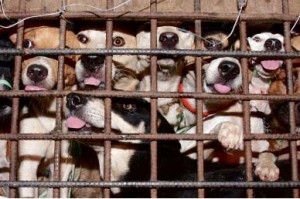KIDAPAWAN CITY, North Cotabato, Philippines—Rabies kills, and this was the message that the regional office of the Department of Health in Central Mindanao sought to convey to the public when it announced Wednesday that all 15 persons reported to it to have been bitten by dogs between January and September this year had died.
In a statement, the Regional Epidemiology Surveillance Unit (RESU) that covers the provinces of North and South Cotabato, Sultan Kudarat, Sarangani; and the cities of General Santos, Tacurong, Koronadal, Cotabato and Kidapawan, said that the figure represented a 25 percent increase from the deaths caused by rabies during the same period last year.
More than half of the reported rabies cases this year were caused by dogs kept at home, which showed that pets could cause rabies just as much as stray animals, the RESU said.
“Most of the victims were aged 10 years old and below,” the RESU noted.
While the death toll was not alarming as of yet, the fact that the number of fatal dog bites was increasing was reason enough for the authorities to impose stricter regulations with respect to pet animal and to intensify the campaign against astray dogs and cats.
Dog owners, Resu said, should be compelled to have their pets vaccinated.
In North Cotabato, where majority of the rabies victims came from, Dr. Dovia Tabugo, chief of provincial health office, said field reports showed that many of the reported dog bites occurred right inside the victims’ homes.
Tabugo said owners of dogs and other pets that could be rabies carriers had not excuse not to have their pets vaccinated because the service is free at government veterinary clinics.
She repeated an earlier appeal to residents to immediately seek medical attention in the event of a dog bite, adding that the North Cotabato Provincial Hospital in Kidapawan City has a special service—the Animal Bite Center.
In case of an animal bite, especially by dogs, health officials said the animal should not be killed but should be taken to the nearest health office for sample extraction and observation. Even if the animal died after the bite, its carcass should be brought to health authorities still.
